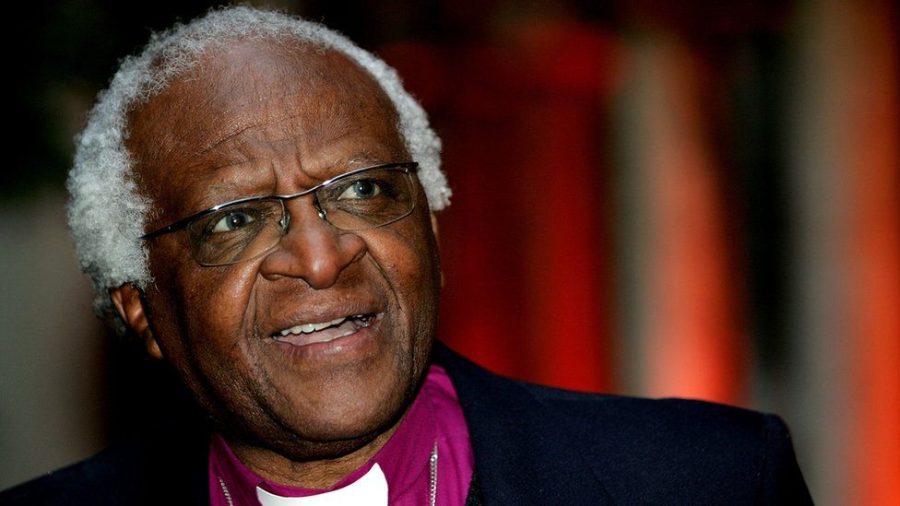Remembering Desmond Tutu
January 4, 2022
It’s easy to get lost in the headlines, especially when each one seems to talk about yet another tragedy. But at the same time, news like this can help us learn and reflect on our world, particularly when it comes to events that aren’t directly related to us. One such example of this occurred recently—on December 26, 2021, when Archbishop Desmond Tutu passed away at the age of 90. Having won the Nobel Peace Prize in 1984, Tutu was a leading voice against apartheid in South Africa. He also advocated for human rights outside of ending apartheid and was renowned worldwide. With his death, it’s also important to consider Tutu’s
accomplishments and the impact that he has left on the world.
Tutu was a priest primarily, serving as the first Black Anglican Archbishop of Cape Town for ten years. His sermons are remembered as emotional and animated, with him often embracing the audience, dancing, and laughing. More than that, Tutu used his position to speak out against the South African government, namely about apartheid. At the time that he was a bishop—from 1986 to 1996 as Archbishop, but in the 1970s as well in Johannesburg—the South African government was silencing political opposition and imprisoning public figures such as Nelson Mandela. As such, churches served as the main voice for the people and the best way that people could speak out. Tutu called for nonviolent protests against apartheid, leading marches and campaigns as well. Not only did he campaign within South Africa for change, but he also reached out globally. During apartheid, he encouraged other countries to place economic sanctions on South Africa as a way to hold the government accountable.
Throughout his life, Tutu remained outspoken. Even as the apartheid era came to an end and a new political party took power, Tutu called out leaders who he believed were unequal and unfair. He had a dream of the “Rainbow Nation”, a “new” South Africa emerging into active democracy and engaged debate. His main objective was a “democratic and just society without racial divisions”, including equal civil rights and a common education system, among other principles. Tutu also believed in a principle he called “restorative justice”—honestly acknowledging past crimes in exchange for forgiveness—which came into play especially in the 1990s, around the end of apartheid.
Above all, though, Tutu is remembered for his moral character. He believed that “justice, goodness, love, compassion must prevail”, staying optimistic through hard times. In South Africa, his legacy stands as the “nation’s conscience”. The values that he held throughout his life are still relevant today, and one way that we can remember him is through considering the ideas that he preached and spoke out on behalf of.
Sources:
● https://www.nobelprize.org/prizes/peace/1984/tutu/lecture/
● https://www.reuters.com/world/africa/south-africas-archbishop-desmond-tutu-dies-aged-
90-2021-12-26/
● https://www.nytimes.com/2021/12/26/world/africa/desmond-tutu-dead.html
Cover Image:
- https://ichef.bbci.co.uk/news/976/cpsprodpb/11B8A/production/_118968527_desmondtutugettyi
mages-52976571.jpg






